Fraud
Fraud crimes in North Dakota are considered white collar crimes and are most common in cases involving financial information. Fraud is committed when a person or business deliberately deceives another person or business for personal gain or financial benefit. There are several different types of fraud crimes that could be prosecuted in any given case.
The type of crime charged will depend on the specific circumstances of the situation and the degree to which force, threats, or coercion have been involved. In this article, we cover a wide variety of things you should know if you’ve been charged with fraud in North Dakota.
Table of contents
Fraud in North Dakota
Most common Fraud crimes
Identity Theft
Mortgage Fraud
Bank Fraud
Insurance Fraud
Short & Long Term Affects of a Fraud Conviction
Defending a Fraud Charge
Fraud in North Dakota
Fraud crimes in North Dakota, or white collar crimes generally, are criminally prosecuted against those who try to profit from deceitful methods. The definition of such crimes can vary by state and may include identity fraud, Medicare/Medicaid fraud, mortgage scams, credit card fraud, and insurance fraud. Other circumstances may include embezzlement, misusing confidential information, and wire fraud. Judges in these cases will consider how much money was actually taken, how the crime was executed, and whether it was a repeated offense.
In North Dakota, there are several fraud crimes that you can be charged with. Due to the wide variety of fraud crimes, it’s important to understand them in detail so you know exactly what you’re facing and how to protect yourself.
If you are charged with a fraud crime, it’s important you consult with an experienced criminal defense lawyer who can help you understand the law, protect your rights, and put together a solid defense strategy.
Most common Fraud crimes in north Dakota
There are more than 30 offenses that could be considered fraud crimes in North Dakota. These include credit card fraud, mail fraud, health care fraud, and identity theft. Below is a list of some of the most common fraud crimes in ND:
Identity theft: Identity theft is a type of fraud that occurs when someone steals your personal information and uses it to open new accounts, make purchases, or commit crimes in your name.
Insurance fraud: This kind of fraud involves deliberately lying about an injury or loss to file a fraudulent insurance claim.
Forgery: The act of making a fake document so that someone else can be tricked into believing that it's real. For example, forging checks could allow someone to withdraw money from someone else's bank account without permission.
Identity Theft
Identity theft occurs when a person uses another person's personal information, such as name, social security number (SSN), or credit card number, without permission, to commit fraud or other crimes.
The penalties for identity theft can be quite severe depending on the facts of the case.
Importantly, you can also be charged with identity theft in North Dakota regardless of whether there is any actual economic or monetary loss to the individual. For example, simply using a fake ID to get into a bar could result in a Class A misdemeanor with maximum penalty of 360 days in jail and up to a $3,000 fine.
A second or subsequent offense is a Class C felony that carries a maximum penalty of 5 years in prison, a fine of $10,000, or both.
Identity Theft Penalties in North Dakota
Penalties for identity theft in North Dakota are usually based on the amount of money that was stolen, where a greater financial gain equals a more serious crime.
< $1,000 stolen: Class C felony: up to 5 years in prison, a fine of $10,000, or both.
> $1,000 stolen: Class B felony: up to 10 years in prison and a fine of $20,000.
Subsequent offenses: Class A felony: up to 20 years in prison and a $20,000 fine.
Mortgage Fraud in North Dakota
Mortgage fraud is an illegal act that involves deliberately misstating, misrepresenting, or withholding information on a mortgage loan application with the intent to deceive a lender, borrower, or other person involved in the loan transaction.
Trying to falsely represent yourself as a person of higher income in order to qualify for a loan is an example of mortgage fraud, as is making false statements about your employment status or debts and assets.
Having bad credit and trying to get a mortgage from a bank by writing fake letters from employers and other companies is also considered mortgage fraud. In some cases, someone who has been denied a loan may be tempted to commit mortgage fraud in order to secure the funds they need.
There are several different types of fraudulent acts that people can commit when it comes to obtaining mortgages. The following are all examples of criminal activities related to mortgage fraud:
Falsifying income or asset information on a loan application
Lying about employment history and occupation on an application
Concealing liabilities like bankruptcy, unpaid bills, or delinquent accounts from lenders
Submitting false documents like tax returns, W2 forms, or pay stubs
Mortgage fraud can be prosecuted on the state or federal level.
Bank Fraud in North Dakota
Bank fraud is a serious crime that can result in large fines and potential prison time. It is important to know that bank fraud is not simply stealing money from a bank - it is using deception to obtain money, property, or anything of value from a bank.
The most common type of bank fraud is account fraud. Account fraud occurs when someone pretends to be another person in order to gain access to that person's bank accounts.
This can include impersonating the account holder, pretending to be an authorized user on the victim's account, or opening a new account in the victim's name and then withdrawing funds from the account.
Unlawful skimming of credit or debit cards
Individuals can also commit bank fraud by targeting ATM machines and point-of-sale terminals at retail locations. They use skimming devices to steal information when an unsuspecting consumer uses their debit or credit card. Bogus checks and counterfeit money orders are also commonly used by criminals who commit this crime. The details of this crime are a outlined in the North Dakota Century Code section 12.1-23-18.
The law classifies first offenses as a Class B felony with a penalty of up to 10 years in jail, a fine of $20,000, or both.
Subsequent offenses are class A felonies carrying a maximum penalty of 20 years in prison and a $20,000 fine.
The crime can also carry a civil fine of not more than $100,000.
Authorities can charge individuals who simply own or possess one of these devices with a Class A misdemeanor, even if it was not used during a crime.
Insurance Fraud
Insurance fraud occurs when someone intentionally files a false insurance claim with the intent of making money. The term is used to describe many different types of insurance fraud, including health care fraud and auto insurance fraud, among others. Insurance fraud is a serious offense under North Dakota law and can result in fines, potential jail time, and more.
People can commit insurance fraud as an individual or through their company/job when they attempt to deceive an insurance company into giving them money. This may involve making a false claim, or it may involve a person or business that is not insured trying to get the benefits of being insured.
Here are the most common insurance fraud scenarios:
Staged auto accidents
Staged injuries
Over-billing
Misrepresentation (falsifying information)
False claims
Fraudulent medical claims (including Medicare fraud and workers' compensation fraud)
Illegal kickbacks
Billing for services not rendered (upcoding)
Short And Long Term Effects Of A Fraud Conviction
In the short term, many fraud convictions carry prison sentences and fines. Unless you qualify for a public defender, you will likely need the help of a criminal defense attorney.
In addition to the possibility of incarceration, a fraud conviction can have lasting effects on your life. After your sentence is served, you may be required to pay additional fines and restitution to your victims in the form of civil penalties.
A fraud conviction on your criminal record can also make it difficult to secure housing or employment. Likewise, you could lose your professional licenses as well as public assistance and even child custody. And if you are not a United States citizen, you may lose your eligibility for citizenship.
A criminal record also makes it more difficult to travel outside the United States, as many any countries may deny entry for convicted felons.
The 3 most common defenses used in fraud cases
Attorneys at Ringstrom DeKrey have defended many fraud cases, both on the state and federal level. In order to defend someone from fraud charges, you have to understand the nature of the offense itself. Most people think that fraud is just lying or cheating, but that's not quite the case. Fraud is a crime defined by state law and federal law, which makes it a little tricky to understand. If you're defending someone from fraud charges, it's important to know every detail of the case.
As a client charged with fraud, it is very important that you are truthful with your attorney about the case and your involvement in it. Your attorney can deal with all the issues as long as they know what’s going on. Lying to your attorney or minimizing your involvement means they will not be able to defend you as well as if you were honest.
The three most common defenses used in fighting fraud charges are:
Insufficient evidence: For someone to be convicted of fraud, there must be sufficient evidence proving beyond a reasonable doubt that they committed the crime. Sometimes this means gathering new evidence, and other times it means showing that the prosecutor did not follow the correct procedure in gathering evidence against you.
Mistake of fact or law: It's not always easy to identify whether someone knowingly committed fraud or was simply making an innocent mistake due to their own misunderstanding of the facts or the law. Sometimes this can be proven by showing how the actions in question were accidental or unintentional.
Duress or coercion: If you were forced to commit a crime under duress or coercion, you cannot be held responsible for those actions. In some cases, this is done through threats of violence against yourself or your family members. If this is the case, you can make this defense and be found not guilty.
Schedule a free consultation
Email: assistant@ringstromlaw.com
Tel: 218-284-0484
730 Center Ave #202
Moorhead, MN 56560


